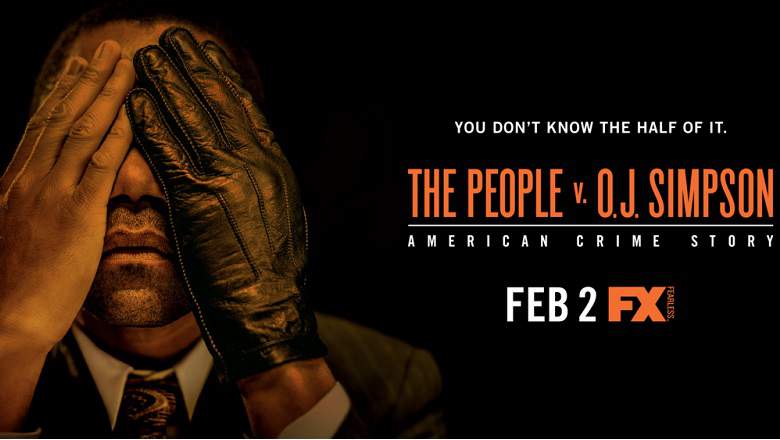The People v. O.J. Simpson: American Crime Story – Reliving the Caravan of Crass
Apr 04

As the last episode of the American Crime Story mini-series, The People v. O.J. Simpson nears broadcast, each week I struggle telling friends if watching the show was worthwhile. The entire saga represents so much of what I hate about America’s fixation on celebrity masquerading as news.
Yet, this is an opportunity for Americans of a certain age to relive the whole sordid affair. As one of those Americans, the show has reminded me of many aspects of the case that unfolded in the news more than twenty years ago, from the slow motion Bronco chase to the announcement of the not guilty verdict.
Anytime you turned on a television in 1994 and 1995, you couldn’t help but be informed of some of the details. Much of the nation first became aware of O.J. Simpson as a murder suspect when Game 5 of the NBA Finals was shoved into a tiny corner of the television screen to show O.J. slow-rolling his way down the Los Angeles freeway. More than 95 million Americans were introduced to the criminal case while watching the beginning of an 18-month caravan of crass.
The show reminds us how the American public learned about the grisly murders of Nicole Brown Simpson and Ron Goldman. It also reminds us of a trial becoming less about direct evidence of the case and more about issues tangential. At a time when DNA evidence was becoming a standard procedure for connecting individuals to crime scenes, the case drew more media attention to O.J., the lawyers, and the profiteering hangers-on than the details of the case. Most Baby Boomers and Gen X’ers can’t help but recall something about the case because some aspect of the case made the real or gossip news nearly every week, if not every day.
That is the likely reason for the 10-episode docudrama. The fame of the trial and the collective memory of potential viewers almost guaranteed an audience. Adding a number of famous actors like Cuba Gooding, Jr., John Travolta, and David Schwimmer certainly enhanced the reasons Americans tuned in to watch.
I understand that from a pure entertainment viewpoint, this mini-series has been fascinating. The story is interesting, the actors are good, there are cultural references, and suspense and humor included. I had forgotten, or never knew, so much about the case that watching the show made the story new again. For example, I did not know how much DNA evidence the prosecution had gathered. I also didn’t know the LA Police Department failed to control the very same DNA evidence.
I was equally transfixed on how Simpson’s attorney Johnny Cochrane capitalized on the racial politics of the day in Los Angeles to overshadow the prosecution’s evidence of O.J.’s guilt. I had forgotten the extent of Detective Mark Fuhrman’s racism and his betrayal of the people’s trust in him as a law enforcement officer. Yet, the most interesting aspect of race in the trial was O.J.’s own description of himself: “I’m not black, I’m O.J.”
I have no idea if, or how much, the show’s writers took liberties with the actual facts of the case. And still after nine episodes, I can’t decide if this has been worth my time. But if you are interested in investing some time in watching the unveiling of a sordid tale more than twenty years later for escapist and nostalgic television, The People v. O. J. Simpson on FX is your show.
Learn more about the author of this blog post, Joe Shannahan.
